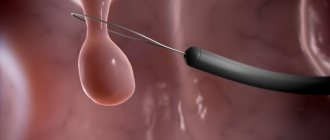Services and prices
Medical termination of pregnancy (pharmabort) French drug
14000 ₽
Sign up
Medical termination of pregnancy (pharmabort)
12000 ₽
Sign up
Medical abortion today is the safest method of terminating an unwanted pregnancy without surgery, the effectiveness of which is close to 100%. The method is gentle on a woman’s psychological health. Any medical intervention is accompanied by anxiety on the part of the patient and certain risks. Medical abortion is based on pharmacological effects on the woman’s body and eliminates the risks associated with surgery. This allows you to avoid adverse consequences in the form of scar changes and infertility in the future.
Abortion is the main cause of gynecological morbidity in Russia, but the frequency of complications from the procedure of medical abortion is no more than 2-3%. The rare occurrence of adverse consequences is an undeniable advantage of this method.
According to Russian legislation, termination of pregnancy by a woman’s decision is possible only in the 1st trimester, up to the 12th week. Currently, there are two main methods of abortion:
- vacuum aspiration
- medical abortion.
The choice of technique remains with the woman. The gynecologist consults the patient and provides her with information about methods depending on the stage of pregnancy, risks, possible complications, and contraindications to the procedure. After weighing all the pros and cons, and determining the risks of each intervention, the gynecologist recommends the most appropriate technique.
Contraindications
- Suspicion or established ectopic pregnancy
- Gestation period more than 63 days from the last menstrual period
- Adrenal insufficiency
- Long-term use of corticosteroid drugs
- Failure of liver or kidney function
- Hereditary porphyria
- Large uterine fibroids
- Individual intolerance to drugs such as mifepristone and mesoprostol
- Diseases characterized by an inflammatory process in the gastrointestinal tract
- Endocrine pathology
- Hormone-dependent tumors
- Inflammatory diseases of the uterus and ovaries
- Scar changes remaining on the uterus after previous interventions
Relative contraindications are:
- Pregnancy occurring during lactation. It is recommended to interrupt feeding for a week from the moment you take the hormonal drug to terminate the pregnancy.
- Pregnancy that occurred while using intrauterine contraceptive methods. Before performing a medical abortion procedure, it is necessary to remove the IUD, after which pharmacotherapy can be taken.
- Pregnancy while taking oral combined contraceptives (COCs). The contraindication is determined by the instructions for the drugs. It is believed that COCs may prolong blood clotting time. In this case, the decision to perform a medical abortion is made by the attending physician, who is responsible for the life and health of the patient.
- A woman taking anticoagulants or having hereditary disorders of the blood coagulation system can cause serious bleeding during medical termination of pregnancy, and therefore is a relative contraindication to the use of this abortifacient.
Until what time can you terminate a pregnancy with pills?
The effectiveness of the method depends on the age and size of the fertilized egg. The drugs work best if the ovum does not exceed 22 mm. According to ultrasound, this equals 6-7 weeks of obstetric period. The number of complications begins to increase in direct proportion to the size of the embryo. According to the standards and instructions for medications adopted in the Russian Federation, a medical abortion can be performed if the delay in menstruation is no more than 42 days from the end of the previous menstruation. In women with irregular and long cycles, the calculation is performed using ultrasound data.
How is a medical abortion performed?
To undergo a medical abortion procedure, a woman goes to an antenatal clinic.
At the initial appointment, if necessary, the doctor may recommend that the patient contact a psychological support office. You can also contact a social support center for pregnant women who find themselves in a difficult life situation, where the patient can receive advice from a psychologist or any other specialist. Every woman has the right to independently decide whether to terminate or continue a pregnancy.
Before choosing a method of termination of pregnancy, the gynecologist collects a detailed medical history: the date of the first day of the last menstruation, the length of the cycle, the nature and duration of the discharge, the method of contraception used. Blood pressure, pulse and temperature are measured. The doctor palpates the abdomen and examines the patient on a gynecological chair, taking smears. This allows the gynecologist to determine the size of the uterus and early signs of pregnancy. Then an ultrasound examination of the pelvis is performed: the gestational age is determined and the fertilized egg is visualized. The latter plays a decisive role in the choice of tactics for artificial termination of pregnancy. The absence of a fertilized egg in the uterine cavity may indicate the development of an ectopic pregnancy, which is an absolute contraindication to medical abortion.
At the appointment, the gynecologist provides information about the methods of abortion that are available to the woman. Ideally, the conversation should take place in a private setting. The confidentiality of medical appointments is guaranteed by the law on medical confidentiality. Also, all women who apply for termination of pregnancy are advised about contraceptive methods. At the patient’s request, the most suitable contraceptive can be selected on the same day. Oral contraceptive methods can be started on the day of taking medications for abortion. It is important to know that the cycle can be restored within 14 days from the moment of termination of pregnancy, which means a second pregnancy is possible.
At the second appointment, the woman finally makes the decision to terminate or continue the pregnancy. By signing a voluntary informed consent, the patient confirms that the doctor talked about how the abortion procedure is performed and presented in an accessible form about the possible risks and complications associated with a medical abortion.
A woman takes medications given to her in a doctor's office. The pregnant woman must spend the next 2 hours in a medical facility under the supervision of medical personnel, who will always be ready to provide her with emergency assistance if necessary. After dynamic observation, the woman goes home. The doctor provides the patient with an emergency number.
After 24-48 hours, the woman returns to the doctor for the second stage of abortion. The patient is taking the second drug in the combination. The woman then remains in the day hospital for 3-4 hours, where her condition is monitored by a team of doctors and nurses. During this time, the patient should begin to experience bleeding from the vagina. If this does not happen, the doctor decides to take another dose of the drug.
Drugs and their action
In Russia, the scheme recommended by the World Health Organization is used. For artificial termination of pregnancy by pharmacological means, two drugs are used, which are synthetic analogues of hormones - mifepristone and misoprostol.
Mifepristone blocks progesterone receptors. Progesterone is a hormone that stimulates the growth of the uterine epithelium to create baby space in the uterus. As a result of pharmacological interactions, miferistone increases the sensitivity of the uterine muscles to prostaglandins and enhances uterine contractility.
The second drug, used in combination with mifepristone, Misoprostol is a synthetic analogue of prostaglandins. It stimulates the muscle layer of the uterus to contract. As a result, the fertilized egg is expelled from the uterine cavity and exits through the vagina. This is accompanied by copious discharge.
Various forms of the drug are available - in the form of tablets, vaginal suppositories or wafers for sublingual or buccal use.
After a medical abortion
According to medical statistics, 85% of patients do not complain. The symptoms experienced by a woman during a medical abortion are similar to those during menstruation. Cramping pain, profuse bleeding from the vagina, sensations of uterine pulsation are symptoms that may normally be present after the procedure. On average, discomfort lasts 7 days, sometimes the recovery period extends to 9.
There is a relationship according to which the longer the pregnancy, the more abundant discharge and unpleasant symptoms the woman experiences.
The fourth visit to the gynecologist is scheduled no earlier than half a month after taking mifepristone. An obstetrician-gynecologist conducts an examination, assesses the abundance of vaginal discharge, the severity of symptoms and general well-being. The success of the pharmacological termination of pregnancy is assessed by ultrasound. There is a possibility of incomplete abortion. This complication occurs in no more than 5% of cases. Then vacuum aspiration is carried out, followed by examination of the resulting material. Currently, it is recommended not to use curettage, as this is the most traumatic method.
Recovery after abortion with pills
Although medical abortion is a gentle method of terminating a pregnancy, it is inevitably accompanied by hormonal stress for the entire body and a decrease in its protective forces (immunity). To avoid complications and quickly restore the body, you should follow a number of rules:
- During the period when bleeding occurs, sexual and physical rest is recommended;
- You should not visit saunas, swimming pools, or take a bath; for personal hygiene, it is recommended to use only a non-hot shower;
- Bloody discharge after an abortion can persist for up to 14-20 days; during the entire period, tampons should not be used, only sanitary pads;
- To quickly restore hormonal levels, micro-dose hormonal contraceptives should be used in the next three cycles.
- If you experience pain in the lower abdomen, fever, or discharge with an unpleasant odor, consult a doctor immediately;
- Visit your doctor promptly after the procedure for a follow-up examination and ultrasound of the uterus.
Medical abortion is the most preferred, most modern and reliable of all existing methods of terminating pregnancy.
Every woman has the right to independently decide when and with whom to have children. We respect any woman’s choice, and are ready to provide high-quality specialized assistance right now
Possible consequences
Although most women have no active complaints after a medical termination of pregnancy, some may develop side effects such as nausea, vomiting, diarrhea, symptoms of general malaise and, in rare cases, fever.
The inevitable reaction of a woman’s body to a medical abortion is abdominal pain and heavy vaginal discharge. It is important to warn the woman about this. Discharge may persist for up to 7-9 days after taking the last drug. This is the norm. However, reactions in the form of heavy bleeding (more than 2 pads in 2 hours), a persistent increase in temperature for more than 4 hours, and nausea, vomiting or diarrhea that persists for more than a day are reasons to seek immediate help.
Abdominal pain indicates expulsion of fetal material from the uterine cavity. The discomfort associated with this can be relieved with the help of over-the-counter non-steroidal anti-inflammatory drugs.
The main complications of pharmacological abortion are incomplete abortion and progressive pregnancy, when for some reason the fertilized egg is not rejected from the endometrium and expelled from the uterine cavity. Progressive pregnancy occurs in less than 1% of cases if the dose of the drug was calculated correctly.
There are cases when a woman decides to continue her pregnancy after taking the first medication. There is no proven connection between teratogenic effects and mifepristone, but the woman should be warned about the possible consequences.
Benefits of medical abortion
- Non-invasiveness of the procedure (traditional curettage has a very negative effect on the condition of the endometrium. This reduces the possibility of becoming pregnant and bearing a child in the future). The risks of infection, including HIV and hepatitis, are also excluded.
- Efficiency. To have such a mini-abortion, there is no need to go to the hospital or even take sick leave (in most cases).
- Efficiency. Even in the absence of surgery, complete expulsion of the fertilized egg occurs in 96% of cases.
- Full control of the procedure both from the doctor and from the woman herself. No anesthesia or other pain relief is required.
In addition, medical abortion is easier to tolerate from a moral point of view.
Is it possible to terminate a pregnancy during lactation? It is possible, but within 24 hours after taking the medication, breastfeeding should be stopped, the baby should be switched to infant formula, and the milk should be expressed. After a miscarriage, breastfeeding can be continued.
How many abortions can be performed this way? This is a very individual question. Any termination of pregnancy negatively affects a woman's health. The medicinal method is the mildest, however, and it can provoke a certain hormonal imbalance for some time.










